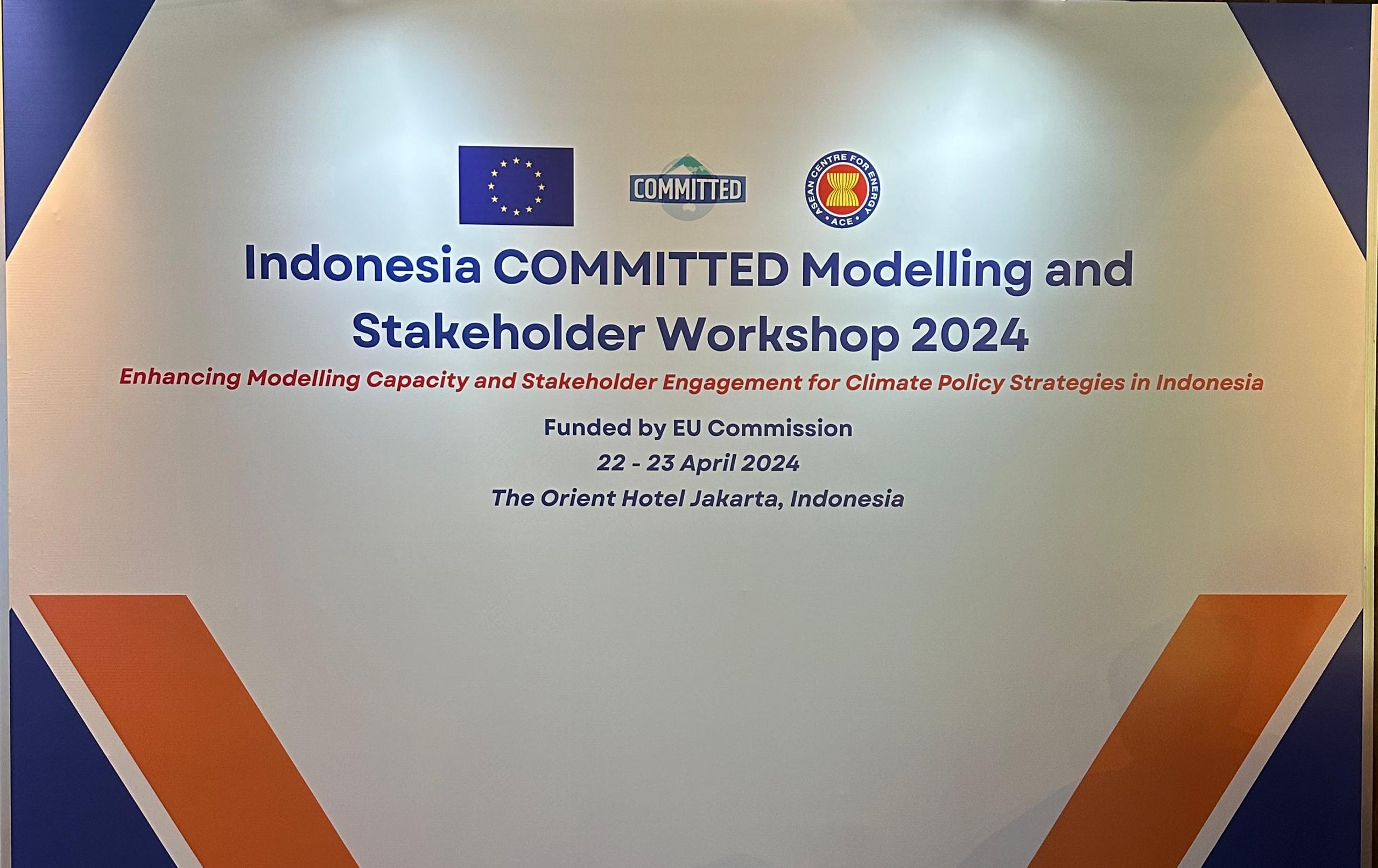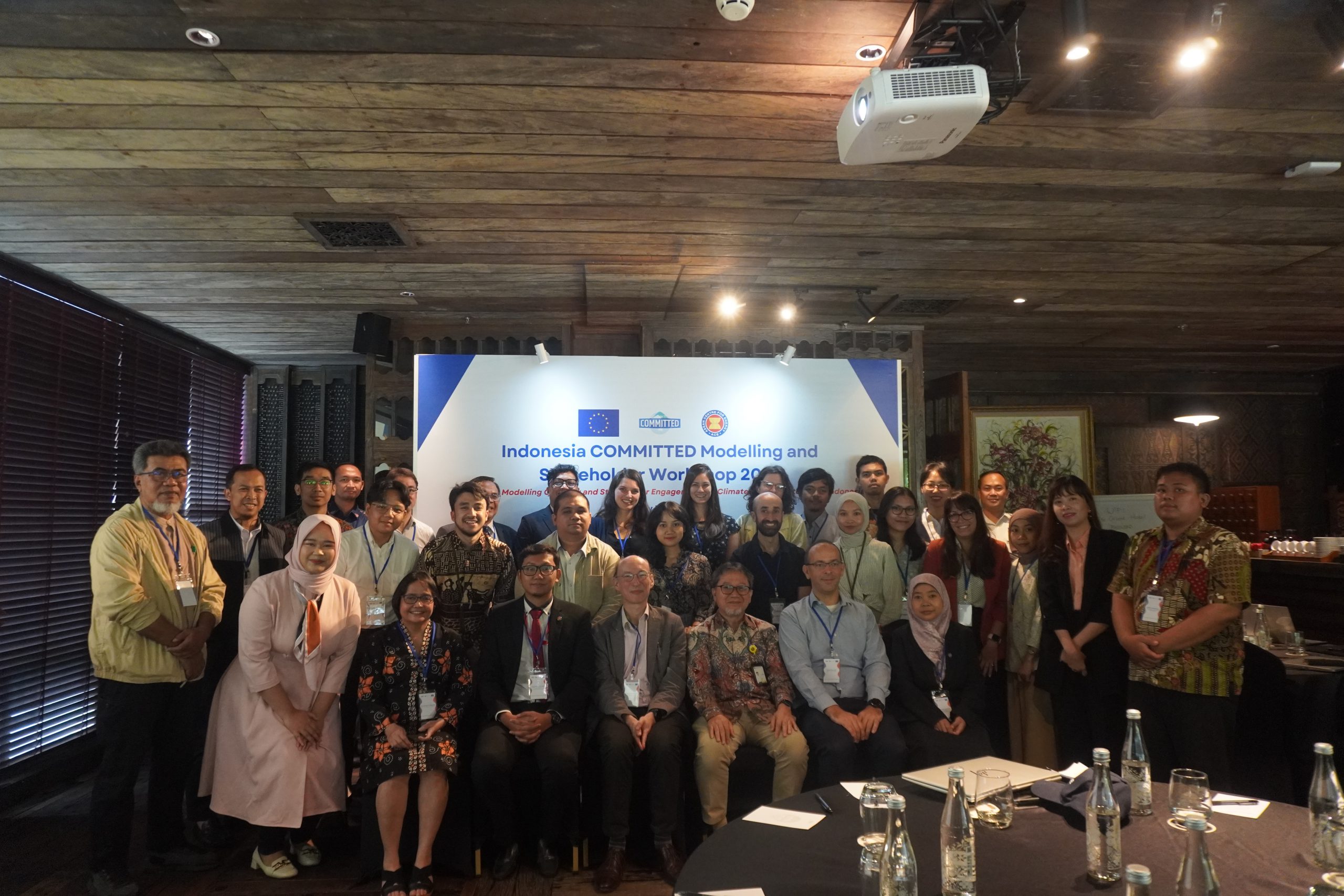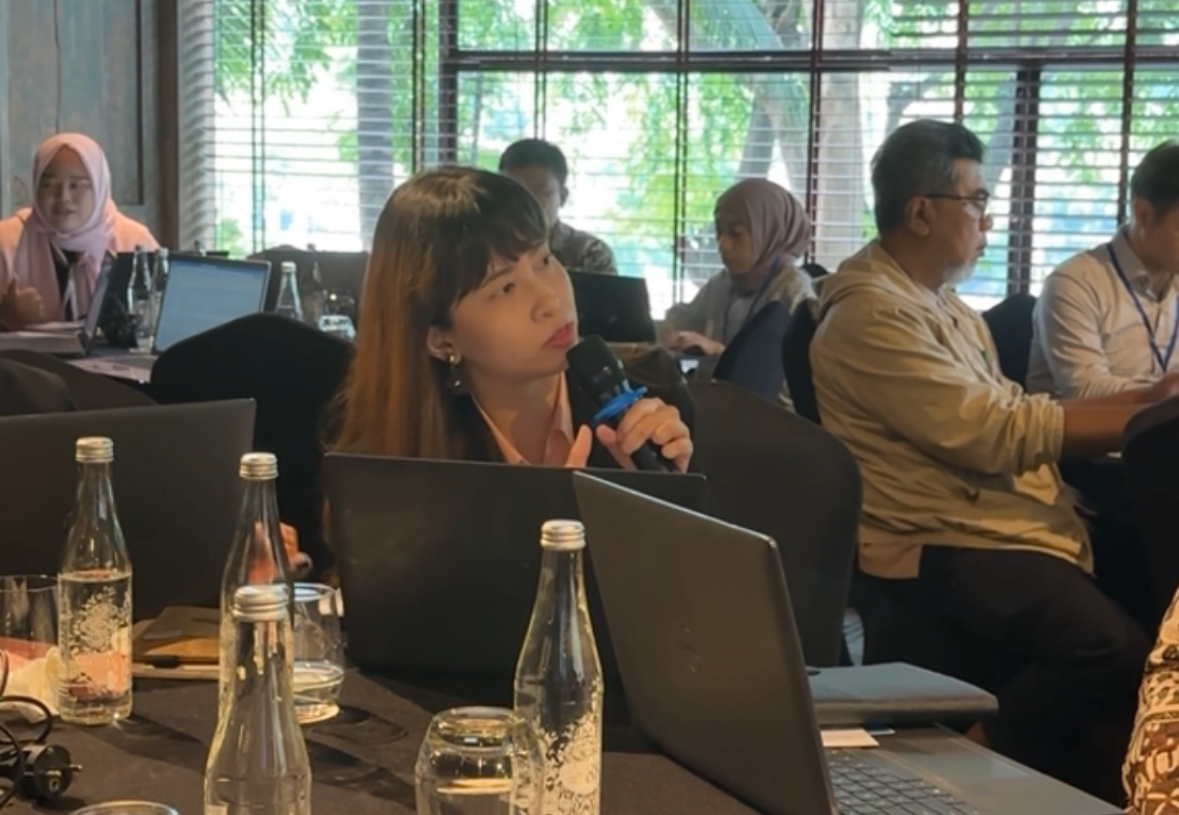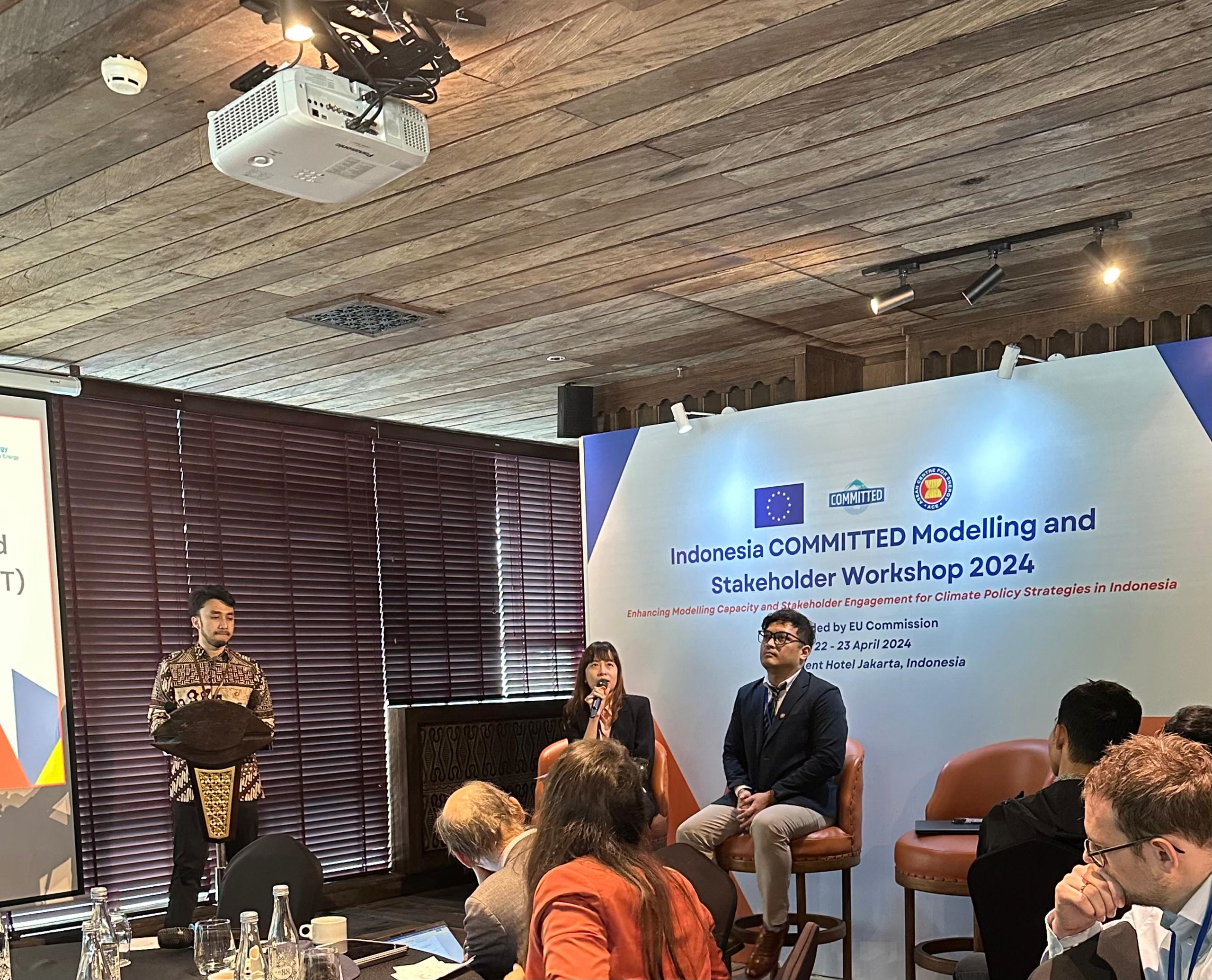i
i

Aligned with Paris Agreement in 2015, Indonesia has expressed the nation’s interest in reducing emissions by 41% conditionally and 29% unconditionally in comparison to business-as-usual scenarios based on the Nationally Determined Contributions (NDC) document. Mainly, the sub-sectors highly contributing the emissions are energy and transportations. As net zero has become a global concern, it is prominent to have international collaboration to accelerate emission reduction in the region to ensure achieving 1.5 Celcius can be realised by 2030.
Climate pOlicy assessment and Mitigation to Integrate national & global TransiTion pathways for Environmental-friendly Development (known; COMMITTED). COMMITTED is a project funded by the European Union (EU) to strengthen the climate mitigation actions through endless support to the researchers and experts in every level by adopting the greenhouse gas emissions modelling. It is focusing on knowledge transfer between governments and Asian modellers in the EU and Asia. Organised by the ASEAN Centre for Energy, the workshop took two days full of capacity buildings and stakeholder discussions focused on national net zero topic.

Photo 1 A photo session with all the participants from various institutions.
On Monday, 23 April 2024, ACCEPT II was invited to present the recent net zero study in COMMITTED Workshop. The event aims to engage policymakers in Indonesia in assessing the scenarios based on the relevant policies and national priorities besides shaping the upcoming National Determined Contributions (NDCs), due in 2025. Other focus of the event is to discuss the intertwined between the modelling results and policies and improving the understanding on integrating science-based policy into the policy model. As we talk about net zero and modelling, the ASEAN Climate Change and Energy Project (ACCEPT)Phase II also takes important role in integrating the energy and climate nexus in Southeast Asia. The project assesses the regional and national climate commitments, besides providing advice the policymakers towards climate actions. The project clearly defines its objectives to enhanced practical knowledge of policy makers on Low-Carbon Economy using energy system modelling.
ACCEPT Phase II is currently undergoing a country-level net zero model that is focusing on the implementation of low carbon technologies in energy-intensive sector. As Lao PDR serves as the 2024 ASEAN Chairmanship, ACCEPT II supports the acceleration of energy transition to achieve the net zero target in the country. A joint study between ACE and The Ministry of Energy and Mines (MEM) of Lao PDR called An Energy Sector Roadmap to Net Zero Emissions is conducted to assess the country’s progress in achieving net zero through modelling system.

Photo 2 Senior Research Analyst ACCEPT II, Aldilla Noor Rakhiemah sharing perspectives on National Net Zero Model
The discussion was held during the “Modelling Session II: 8th ASEAN Energy Outlook (AEO) and ASEAN Climate Change and Energy (ACCEPT) Net Zero Project” moderated by Muhammad Ilham Rizaldi, ACCEPT II Research Analyst. In this session, Aldilla Noor Rakhiemah, Senior Research Analyst of ACCEPT II highlighted that ACCEPT II is serving ASEAN as the first energy and climate nexus project in the region. An urgent need to assess the policies model should be done to ensure the NDCs are achievable whether in each AMS or in regional level. In Lao PDR case, Aldilla mentioned that direct consultation between ACCEPT II and MEM was held to understand country’s priority, target, and pathways to achieve net zero, especially from technological perspectives. Therefore, ACCEPT II supported by the Stockholm Environment Institute (SEI) applies relevant low carbon emissions technologies that is potential to be applied in Lao PDR, such as Carbon Capture and Storage technology. The initial result showed an optimistic trend of GHG emission reduction by introduction of several net-zero technologies until 2050. The study indicates that achieving carbon neutrality in Lao PDR would also need to consider GHG emission reduction beyond energy sector. Specifically, Lao PDR needs to consider emissions in the Agriculture, Forestry and Other Land Use (AFOLU) sector which plays a crucial part in providing carbon sink for the region to achieve carbon neutrality by 2050.

Photo 3 ACCEPT II Research Analyst, Muhammad Ilham Rizaldi moderated the Modelling Session II together with panelists; Aldilla Noor Rakhiemah, Senior Research Analyst ACCEPT II and Michael Petalio.
Aldilla highlighted the key-lessons from the Lao PDR Net Zero, whereby the modelling results can give insights on the timeframe for introducing net-zero technologies in Lao PDR to achieve carbon neutrality by 2050. this will also help provides insights on either direct or indirect effect on the needed investment, cost, social and environmental aspects. Moving forward, the net zero model will be developed into regional model for ASEAN Member States as part of the 8TH ASEAN Energy Outlook as the Carbon Neutrality Scenario.
Moving forward after the Lao PDR Net Zero Study, the model will further be adapted to a regional scale model to other ASEAN Members States and later roll-out the implementation of Carbon Neutrality Scenario in the regional level. Besides, ACCEPT II is proactively working in preparing the draft report and aiding for the MEM of Lao PDR. The highlight will be launching a report in conjunction with the 42nd AMEM in Lao PDR, whereby the report will be disseminated to other ASEAN Member States.
(IB & IP)
Join our ASEAN Researchers Network on Climate Change (ARNECC) by registering yourself here. Become a part of our collaborative efforts to address pressing climate challenges and shape a sustainable future.
Detailed information on ACCEPT II can be found at https://accept.aseanenergy.org/
We welcome any future collaboration, please feel free to contact us at [email protected]